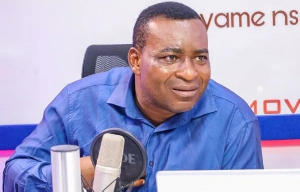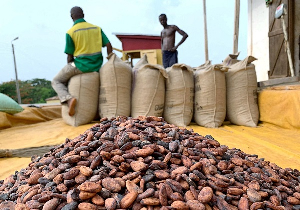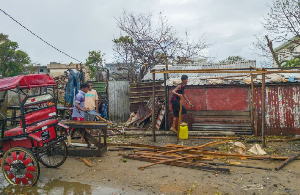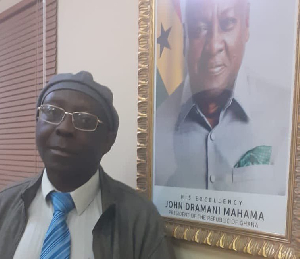General News of Saturday, 6 July 2019
Source: ghananewsagency.org
Government to address problems of the diaspora – Awua Ababio
Akwasi Awua Ababio, Director, Diaspora Affairs, Office of the President, has said that government was taking steps to address the problems of the diaspora.
He said they were prepared to engage Parliament to enable Ghanaians in the diaspora not to just come home, but come home to assist in every aspect of nation-building.
He made the observation at the Ghana Diaspora Celebration and Homecoming Summit 2019, being held in Accra on Friday.
He said the Diaspora Affairs office was established by the President in fulfilment of the commitment to involve Ghanaians living abroad in the country’s development.
Mr Awua Ababio said the Ghanaian Diaspora extends beyond Ghanaian citizens and their immediate relatives living abroad but includes people of African descent and people with a vested interest in the country.
The homecoming summit was instituted as a biennial event to rally Ghanaians living abroad to dialogue, network and explore economic and investment opportunities in Ghana in furtherance of the President’s Agenda of Ghana beyond Aid.
He said the 2019 Diaspora Celebration and Homecoming Summit, builds on the previous ones, especially the 2017 event, following the maiden one held in 2001 under the leadership of former President John A. Kufuor.
“The aim of this third summit is to highlight and celebrate the various achievements of the Diaspora towards Ghana’s development.”
He said the office has taken steps to form a legal team to lobby appropriate stakeholders for the amendment of Articles 8(2) and 94(2)(a) of the 1992 Constitution, which restrict the Rights of Ghanaians with Dual Citizenship to fully participate in Ghana’s socio-economic discourse.
He said it was the belief that the removal of the constitutional restrictions would quicken the President’s commitment to “allow Ghanaians living abroad to participate fully in our national discourse and benefit fully from the opportunities this nation has to offer.”

On the implementation of the Representation of The People’s Amendment Law, 1992 (PNDCL 284), (alias ROPAL), he said his team continuously engaged the Electoral Commission with practical suggestions towards implementation.
“We sincerely believe that our Diaspora engagement could be further strengthened by implementation of the right of Ghanaians abroad to vote.”
“The Diaspora Magazine is a quarterly publication by our Office to engage Ghanaians living abroad.
“The publication is financed through corporate advertisement and sponsorship and provides an avenue for Ghanaians living abroad to receive and contribute their views on Ghana’s political discourse.
He said on the larger economic front, government was increasingly leveraging on technology and E-governance to improve service delivery.
There has been massive improvement in our port clearing services, payment systems and money transfer systems.
There is the introduction of voluntary Faculty, Diaspora Engagements, Collaboration with International Agencies such as IOM, German Government, EU, British High Commission and others to ensure efficient and sustainable migration to promote Ghana’s development and Diaspora Database.
Mr Awua Ababio said the Diaspora Engagement Policy was a strategic document to promote constructive commitments between Ghana and its diaspora for the purpose of leveraging mutual benefits.

The policy, he said, addresses issues of diaspora community such as enhancing Diaspora-Homeland relationship, issues of citizenship/Nationality and rights, Social Security and its portability, political incorporation and voting rights, social protection and human rights at destinations.
It also addresses issues of creating linkages between the second and third generation Diasporas and Ghana, their homeland, creating linkages between the youthful Diaspora and Ghana, leveraging mutual investment benefits and privileges, mobilizing remittances (ideas, skills, funding) for sustainable development and return, re-admission and reintegration.












